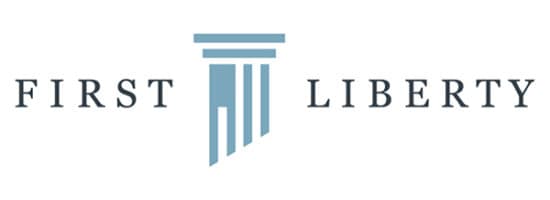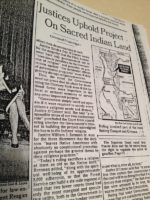
Government Actions Violating the Free Exercise of Religion Require Heightened Scrutiny
When the government’s interest in timbering led to the destruction of land traditionally used by Native Americans for religious purposes, the Supreme Court ruled against the Native Americans. The opinion read, “Whatever rights the Indians may have to the use of the [land in question did] not divest the Government of its right to use what is, after all, its land.” Learn more about how we fought and won the case at Firstliberty.org/Briefing.
Thank you for joining us for the First Liberty Briefing, an exclusive podcast where host Jeremy Dys—also First Liberty Senior Counsel—provides an insider’s look at the stories, cases, people and laws that have made America the world’s leader in protecting religious liberty.
 In 1987, the Supreme Court was asked whether timbering operations within a National Park over a portion of land traditionally used for religious purposes by Native Americans violated the First Amendment’s Free Exercise Clause.
In 1987, the Supreme Court was asked whether timbering operations within a National Park over a portion of land traditionally used for religious purposes by Native Americans violated the First Amendment’s Free Exercise Clause.
Justice O’Connor’s opinion in Lyng v. Northwest Indian Cemetery Protective Association concluded that:
“Whatever rights the Indians may have to the use of the [land in question did] not divest the Government of its right to use what is, after all, its land.”
But, not all the justices agreed. Justice Brennan, joined by Justices Marshall and Blackmun, disagreed. He reasoned that the timbering in question threatened the “very existence of a Native American religion.” He concluded on a somber note:
“Today, the Court holds that a federal land-use decision that promises to destroy an entire religion does not burden the practice of that faith in a manner recognized by the Free Exercise Clause . . . I find it difficult, however, to imagine conduct more insensitive to religious needs . . ..”
Thirteen years later, Congress would pass the Religious Land Use and Institutionalized Persons Act. At the least, RLUIPA would’ve required the government to demonstrate that its actions were the least restrictive in pursuit of a compelling government interest. RLUIPA, like RFRA, insists that government actions substantially burdening the free exercise of religion receive heightened scrutiny.
That protects all of our religious liberty.
To learn how First Liberty is protecting Religious Liberty for all Americans, visit FirstLiberty.org.
First Liberty Institute is the largest organization in the nation dedicated exclusively to protecting religious freedom for all Americans. Find out more here.
(This podcast is by First Liberty Briefing. Discovered by Christian Podcast Central and our community — copyright is owned by the publisher, not Christian Podcast Central, and audio is streamed directly from their servers.)